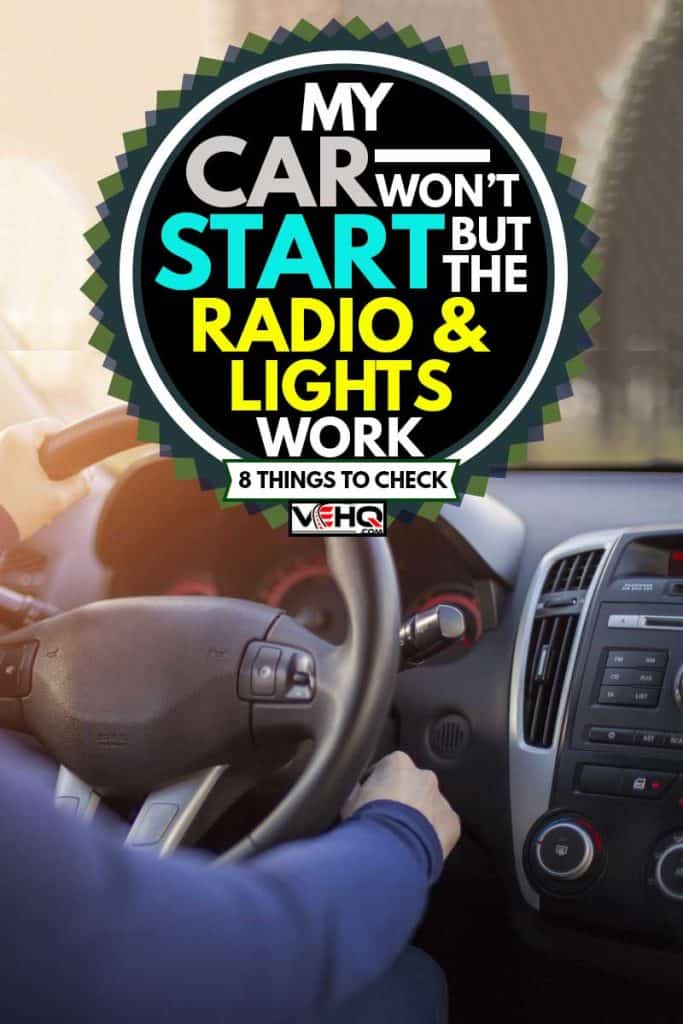The lights coming on but the car not starting could indicate a problem with the battery or starter motor. In such cases, it is advisable to check the battery connections and if necessary, try jump-starting the car or replacing the battery.
Additionally, a faulty ignition switch or a malfunctioning fuel pump can also be potential causes for the issue. Car won’t start but lights come on when you find yourself in a situation where your car’s lights are coming on, but the engine won’t start, it can be quite frustrating.
This issue is often an indication of a problem with the battery or starter motor. However, there could be other underlying causes, such as a faulty ignition switch or a malfunctioning fuel pump. We will explore the possible reasons why your car won’t start despite the lights coming on. We will also provide some troubleshooting tips to help you diagnose and resolve the issue. Read on to find out more about this common car problem and how to fix it.

Credit: www.youtube.com
Battery Issues
Car owners often encounter the frustrating situation of their car not starting, despite the lights coming on. One possible cause for this issue is a dead battery. Signs of a dead battery include the engine not cranking when the key is turned, and the headlights appearing dim.
If you suspect a dead battery, you can try jump starting it using jumper cables and another vehicle’s battery. However, if jump starting doesn’t work, you may need to consider replacing the battery. Another potential problem could be corroded battery connections.
Signs of corroded connections include difficulty starting the car and a sulfur smell. To fix this, you can clean the battery connections using a mixture of baking soda and water. Additionally, to prevent future corrosion, you can apply a layer of petroleum jelly to the battery terminals.
Lastly, a faulty alternator can also cause a car not to start. Signs of a faulty alternator include flickering lights and a dead battery despite charging it. In such cases, you may need to repair or replace the alternator. Regular maintenance of your alternator can help prevent issues in the future.
Fuel System Problems
An empty fuel tank can be the reason your car won’t start, even if the lights are on. Refilling the tank is the first step in resolving this issue. To prevent situations of an empty fuel tank, make a habit of checking your fuel gauge regularly.
Another potential fuel system problem is a clogged fuel filter. Look out for signs such as reduced engine performance or difficulty starting the car. If you suspect a clogged fuel filter, it may need to be replaced. Regular maintenance of your fuel system is essential to ensure it functions properly.
Lastly, a faulty fuel pump can also prevent your car from starting. Signs of a faulty fuel pump include sputtering or stalling while driving. Depending on the severity of the issue, you may need to repair or replace the fuel pump for optimal functioning.
Ignition System Malfunctions
Car won’t start but lights come on? It could be due to a malfunctioning ignition system. One possible culprit is a faulty starter motor. Signs of a faulty starter motor include a clicking noise when you turn the key and the engine not cranking.
Depending on the severity of the issue, starter motor repairs or replacement may be necessary. To prevent future problems, regular maintenance of the starter motor is essential. Another potential issue is ignition switch problems. Signs of ignition switch problems include difficulty turning the key or the engine not starting at all.
In such cases, ignition switch repair or replacement may be required. Additionally, faulty spark plugs can also prevent your car from starting. Signs of faulty spark plugs include misfires, decreased fuel efficiency, and difficulty starting the engine. If you notice any of these signs, spark plug replacement is recommended.
Regular maintenance of spark plugs can help prevent issues in the future.
Conclusion
To troubleshoot a car that won’t start but has functioning lights, it’s important to consider a few key factors. Firstly, inspect the battery connections for any corrosion or loose connections. Tightening or cleaning these connections can often resolve the issue.
Secondly, check the condition of the battery itself. If it’s old or not holding a charge, it may need to be replaced. Additionally, the starter motor and ignition switch should be examined for any faults. Sometimes, a faulty starter or ignition switch can prevent the car from starting.
Finally, if all else fails, it may be necessary to seek professional help from a mechanic who can diagnose and repair the underlying issue. By following these steps and considering these potential causes, you can increase your chances of getting your car up and running again smoothly.

